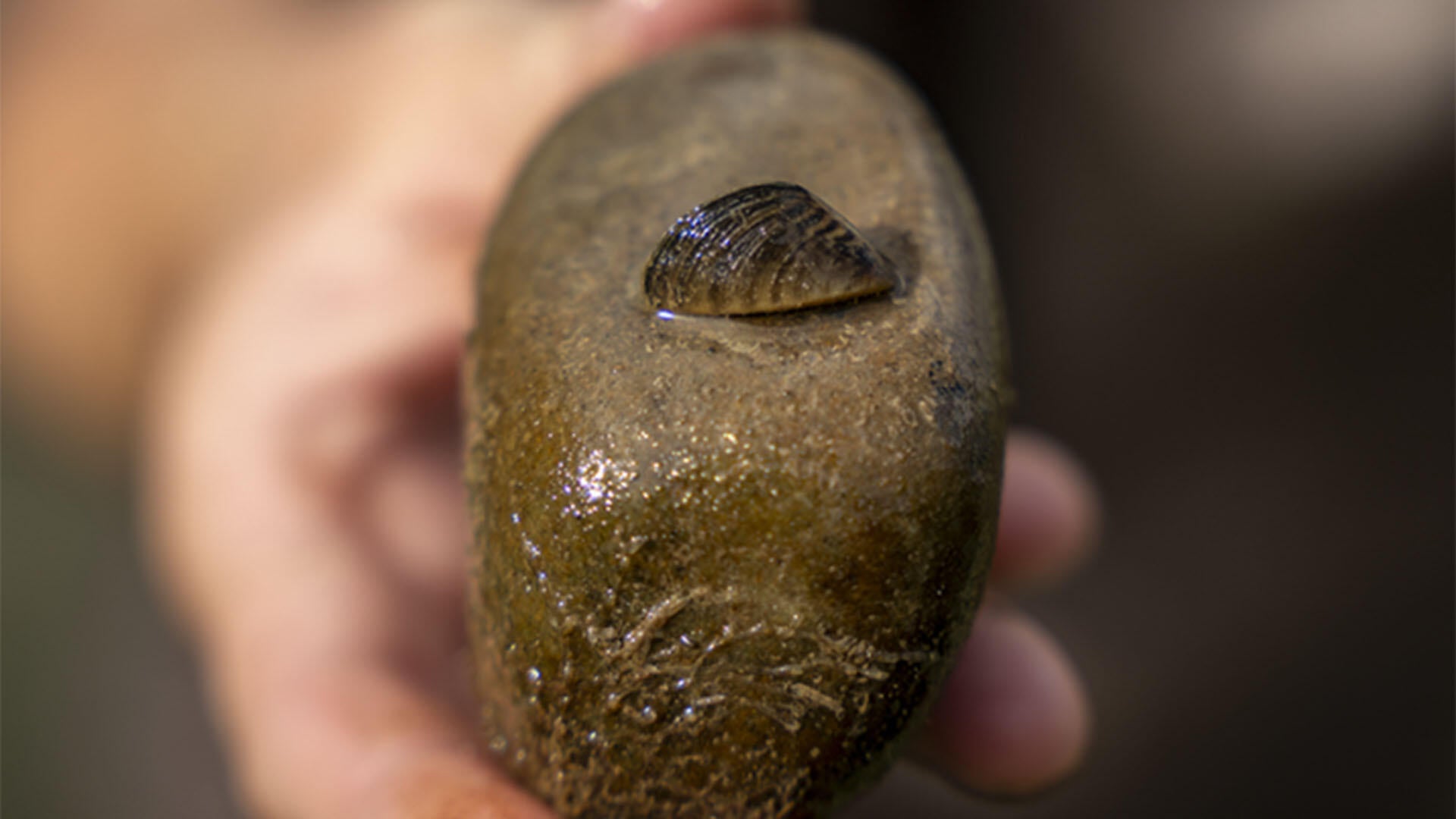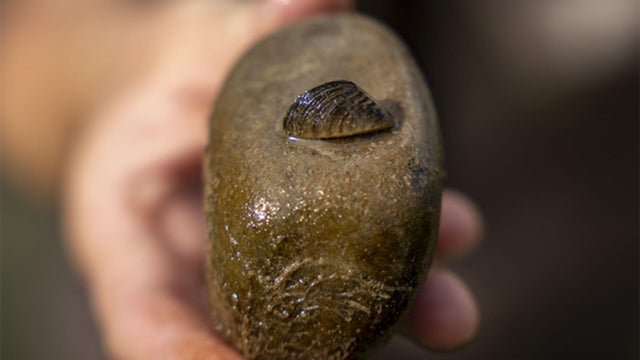Adult zebra mussels discovered in the Colorado River for the first time
Part of the Colorado River is now an "infested" body of water. That's according to Colorado Parks and Wildlife, which says adult zebra mussels have been discovered in the river for the first time.
CPW says the term infestation is used when "multiple zebra mussel life stages have been found in that body of water." The infested part of the Colorado River starts at the 32 Road bridge near Grand Junction in western Colorado and stretches to the Utah-Colorado border.
Zebra mussels are an aquatic nuisance species that has been discovered in other parts of Colorado and whose presence can lead to an increase in water temperature and fish deaths. As they consumer aquatic nutrients they can damage ecosystems, and their presence could result recreational boating limits.
The river cannot be treated for zebra mussels due to the risks to native fish populations.
CPW's Aquatic Nuisance Species team has been tracking the presence of zebra mussels across the state, and they are now asking property owners with a pond or a lake that uses water from the Colorado River to let them inspect that body of water.
"It remains critical for the continued protection of Colorado's aquatic resources and infrastructure to fully understand the distribution of zebra mussels in western Colorado," Robert Walters, CPW Invasive Species Program Manager, said in a prepared statement. "We can only achieve this with the assistance and participation of the public."
Anyone who uses boats, paddleboards or kayaks is encouraged to clean, drain and dry them after they have left bodies of water in Colorado to prevent the spread of the aquatic nuisance species. Learn more at cpw.state.co.us/species/zebra-and-quagga-mussels.

